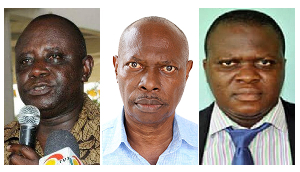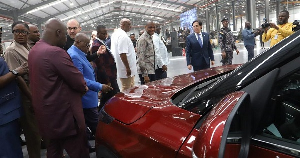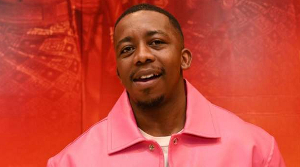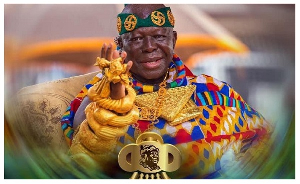Opinions of Saturday, 18 January 2003
Columnist: Yeboah-Konadu, K
The Development Challenge: The Ghanaian Case.
At the just ended Congresses of Ghana’s two biggest political parties all kinds of euphoric promises were made regarding how they intend to solve the country’s multitude of problems...failing schools and health facilities, the intractable energy crisis, etc. Despite the wide-ranging reforms of the past two decades, the country’s economic development remains the most formidable challenge of all times.
We all know that despite some tentative upsurge for a short period of time in the middle of the reform efforts, Ghana’s real per capita income is about 10-15% below 1983 level when the structural adjustment programme was launched. Our schools are decidedly worse of than they were twenty years ago, the average Ghanaian is more distressed economically than ever before and the level of public venality has reached stupendous proportions which even by our usually very low standards, verge on the absurd.
The record of the previous administration, judging by what is emerging from the proceedings of the Fast Track Court is especially distressing in this regard. It would appear that during the period of almost twenty years, our former Head of State saw the national treasury as his private purse.
The economic situation has indeed become dire by any standard of measurement.
Reviewing some factors
This situation has of course been created by a steady flow of a number of factors such as:- ? Adverse terms of trade with especially the wide fluctuations in commodity prices, e.g.: cocoa. You all do remember that within just a few short months, the price of cocoa has risen to about $2000 per tonne and fallen to as low as about $1700 or less. By some estimates, coffee prices have declined by about 70% since 1997.
? Even if our growth rate can be sustained at 4 % per annum (which is roughly what it seems to have been for the past ten to fifteen years), it is most unlikely that we can halve the current level of poverty by the year 2015. This is because whatever gains will be attained will be wiped out by the growth of population which is about 3%. The United Nations has estimated that for the level of poverty to be cut into half by 2015, the economy should grow by about 15% p.a. continually from now until then. In parenthesis, the poverty indices of the northern regions especially are very harrowing indeed. Those statistics constitute a very serious blight on our collective conscience, and need to be reversed rather quickly.
? The resource gap continues to widen for a number of reasons, such as, lack of domestic savings, capital flight, the debt overhang, domestic/foreign investment deficit, corruption, decline in Official Development Assistance (ODA), etc. It is partly in this context that, in my view the decision by the government to opt for the HIPC initiative should be viewed, for it is clear to me at least, that some have condemned that decision either out of context, ignorance, for political reasons or a combination of all these factors. The real fact of the matter is that under our present circumstances, there was no way that we could have avoided that decision and the parallel one of Ghana being designated a Least Developed Country (LDC) by the Development Committee of the UN some time in the spring of 2002. Sooner than later those two milestones in our economic development were bound to be attained, no matter which political party was in power. The decision could have been postponed, but the fundamentals of our economy would have thrust that decision on any Ghanaian government.
Against all of this, what should be the way forward?
A number of policy options present themselves. Some of them have been pursued, rather half-heartedly, I should add quickly, and some of them have received only lip service. We seem to going round in circles. The first major policy challenge is the diversification of the Ghanaian economy from a preponderantly raw-material producing/exporting country to one, which adds value to her own natural products for both the domestic and export markets. The economics of this policy is almost self-evident but for some reason it has eluded us for the best part of our national life. There is no justification, in my view, for example that more than forty years after independence, our gold is shipped to Zurich for processing. This may be shocking to some of you, but this is exactly what happens. ALL our gold from Obuasi and the other mines is shipped in boxes to Zurich where the precious metal is extracted from the dust before we are told its value. Many more of the commodities we produce, be they minerals, cocoa, coffee, timber, fruits, or vegetables, can be processed locally with very modest, but appropriate technology before export thus generating better and decent paying jobs and enhancing the technical skills of our workers. This is the realistic, tested and one should add, inescapable route to sustainable development!
Government after government since independence has promised to diversify the economy by expanding the commodity base (horizontal diversification) as well as adding value to our raw materials (vertical diversification) before exporting them, first to create real jobs at home and to earn more money, and yet we continue to specialise in the production of a few raw materials for export. Virtually all the so-called non-traditional exports are barely processed before they are exported to Europe and America. So almost fifty years after independence we are still doing what the Europeans meant us to do when they colonized our continent. On the other hand however, Asian countries with the same historical experience are slowly, but surely becoming competitors to European and American businesses in a wide gamut of manufactures and services. We have even reached the ridiculous extent of rushing to Malaysia to learn how to add value to our raw palm products.
The other major policy failure has been in the area of regional cooperation. In 1975, Ghana was one of the core countries, which launched the ECOWAS enterprise. It was with understandable euphoria that our Heads of State signed the Treaty. Since then only God knows how many Conferences have been convened, and how many Protocols have been signed to promote real integration in West Africa. A good quarter of a century later, the regional share of our foreign trade is too dismal to talk about and yet everyone knows that the trend in international economic relations is towards the creation of blocs—the European Union, NAFTA, MERCUSOR, COMESA, ASEAN, etc. The advantages of regional integration and cooperation are obvious and numerous. For one thing, wider regional markets can open up more opportunities for Ghanaian producers and consumers beyond our small economic space. Serious cooperation with our ECOWAS partners would have reduced the costs of developing essential infrastructure such as transport, communications, energy, water systems, etc. Similarly, integration would have facilitated large-scale investments by reinforcing the attractiveness of our economy and reducing risks for investors.
My personal knowledge and experience of economic development throughout Africa have amply revealed to me that some countries are more willing and committed to regional cooperation than others. In such situations, the European experience should have served us well. The commitment of France and Germany to the success of the European process has by and large been at the heart of whatever has happened to that integration effort. It is obvious that economic integration will facilitate political integration, which Kwame Nkrumah championed with such understandable passion. There is no reason why Ghana with like-minded countries, such as Nigeria and Senegal should not take the lead in ECOWAS. The first test is to remove all the physical barriers to trade between, say Ghana and her immediate neighbours-Burkina, Cote d’Ivoire, and Togo. That “best practice” could spur the unwilling countries to see the economic and other benefits of integration. The time has come for all manner of prevarication to be put to rest. The fact of the matter is that we have lost too much precious time and perhaps the moment has arrived for our government to cede the initiative in this important exercise to the business people who have more to gain from regional integration.
A historical context
Representing the United Nations Secretary General at our independence celebrations in 1957, Ralph Johnson Bunche, the distinguished African American intellectual and at the time the Under Secretary General for Political Affairs made an observation which in retrospect has proved to be completely, but sadly prescient. He said, among other things that Ghana had all the ingredients of a potentially successful model for African development, but that the new Prime Minister (Kwame Nkrumah) should pay particular attention to corruption, the signs of which were fairly on display. That could be Ghana’s undoing, he predicted. How prophetic! Our leaders know (or should know) that not only does corruption discourage potential investors, it also has the effect of poisoning the political system beyond repair as has been witnessed the world over. Observers may have their individual interpretations of the reports of the various commissions of enquiry, which have invariably followed every change of government in Ghana. Nobody can however deny that corruption has become literally an integral part of our political process.One of the attractions about JJ Rawlings at the initial stages of his “Holy War” was the impression, which with the benefit of what we now know was a well constructed hoax, he gave that he was out to tackle the perennial problem of official corruption head on. Naively a lot of people believed him and gave him unflinching support. The rest of the story, as they say, is now history. Twenty years later, all we are saddled with are sordid tales of how his cronies milked our national treasury. Day after day we are now getting to know that he was a fraudster of monumental proportions. How has he been able to support his sumptuous life style (expensive schools for his children when our children were learning under trees, 4 brand new TOYOTA LANDCRUISERS, fully paid for and delivered in containers, a fleet of other vehicles and mansions, checking into first class Swiss Clinics when our hospitals and clinics were falling apart, etc.) on the kind of salary that we were made to believe he was on? How on earth can he, in good conscience, explain some of the stories we are hearing at the Fast Track Court, apart from the puerile and cruel alibi that those who are appearing before the court are being witch-hunted and/or politically persecuted? Oh, please! How could he not have known what was happening in the so-called 31 December Women’s Movement? Just how is it possible, given that his wife reigned supreme in that Movement? How possibly could he have forgotten that he caused several Ghanaians to be executed and or imprisoned for relatively minor offences against the state, some of which were not even sufficiently proved?
Enter President J.A. Kufour and his zero tolerance for corruption undertaking at the beginning of his presidential career. While true to form, we may not be able to establish the extent of venality within his government until he is out of office, there are some indications that all is not very well on that front. The war on corruption requires determination, steadfastness and discipline for, any relaxation on that front will hand a huge prize to the culprits. The good news though is that at least there is some semblance of concern. And for the first time in our history, there is a government which has wisely allowed the press to operate as freely as the law permits them to do, we have an Opposition which, even though frivolous at times, is doing a decent job and nobody has been killed or imprisoned on account of his political belief or success. I think these are hugely significant achievements for which President Kufour and his government can be legitimately and justifiably very proud. Whether they can persevere to make this culture a permanent feature of our politics or not, we have to leave it to posterity to judge.
The other day, he was quoted as saying that it is a shame that we have to depend on outsiders for about 60% of our budgetary needs. It is indeed a shame for a country as richly endowed as ours to be so dependent on our so-called development partners. This clearly needs to be reversed because a country which is dependent on outsiders to that extent has absolutely no right to be proud of anything, including even the fact that the Secretary General of the United Nations is a son of the land and the fact that democracy seems to be taking roots. Estimates vary, but there seems to be a consensus on one thing and it is that if even a tiny fraction of the country’s resources that are peculated and mismanaged by public officials were to be available to the citizens of Ghana, we would perhaps need no external assistance (or very little of it) to balance our budget. Government tax revenues would be close enough to upgrade our schools and hospitals, pay decent wages to the workers of Ghana, build our roads and other needed infrastructure, etc. Clearly it is absolutely unfair for any government to allow a tiny fraction of its citizens with access to national resources to loot them, drive away potential investors and burden the generality of the population with all kinds of inconveniences and irritations, such as increased taxes, poor public services, bad international press, national shame and embarrassment, etc.
Relationship with the Lending Institutions:
Our relationship with the Bretton Woods Institutions (the IMF, World Bank and WTO) needs a serious overhaul. The fact of the matter is that nobody with the slightest sense of what is right can seriously argue that the prescriptions that they have administered on us have been beneficial.The conventional trade theory which has been literally foisted on us by these institutions as part of the policy packages that we have been made to accept as part of structural adjustment, for example, would indicate that we would benefit from integration into the global economy by trading in those commodities in which we have a comparative advantage, namely the production of raw materials. But this theory has been confounded by reality.
The other part of the advocacy accompanying structural adjustment is trade liberalization. In the case of the IMF and the World Bank, this particular advocacy has been premised on our acquiescence in exchange for access to certain facilities. It is patently obvious that the application of these theories has been deeply flawed and producing bad results.
Over the years we have seen with our naked eyes that the more we have exported raw cocoa beans and coffee, the higher the levels of unemployment and the more the obliteration of the few industries that we had prior to the inauguration with fanfare of the so-called reforms. We have embarked on a massive scale of de-industrialization with massive imports of all kinds of things including such exotic items as dog chains and rotten chicken wings and thighs. We now know from experience that rapid trade liberalisation has resulted in growing inequality. Real wages were lower at the end of the 1990s than at the start of this decade. There is ample evidence that the rural poor have been particularly hit. This is partly because the economy has simply stagnated!
Many a time some observers have wondered why SE Asian countries are performing well while African countries are struggling, getting poorer and poorer. The reason is quite simple. Whereas African countries such as Ghana have religiously followed these policy prescriptions to over-liberalise their trade regimes, countries such as Thailand, Malaysia and the Philippines have been extremely cautious, indeed hesitant, in opening up their markets to outside competition. This has allowed them to simultaneously nurture those sectors of their national economies with a combination of prudent homemade policies including targeted subsidies and effective regional trade and investment promotion in order to make them both internationally competitive and externally strong, vis a vis third parties in international trade negotiations.
In my view, even though some of our economic problems result from external factors largely beyond the control of our government, there is absolutely no question that with direction, determination, honest and dedicated leadership we can and should become a middle-income developing country by the year 2025. The rather modest target of $1000 per capita GNP is most definitely attainable. Is there a lesson to be learnt from others? It is part of a serious challenge that we face as a country in search of a good standard of living for every single Ghanaian citizen.

Views expressed by the author(s) do not necessarily reflect those of Ghanaweb.












